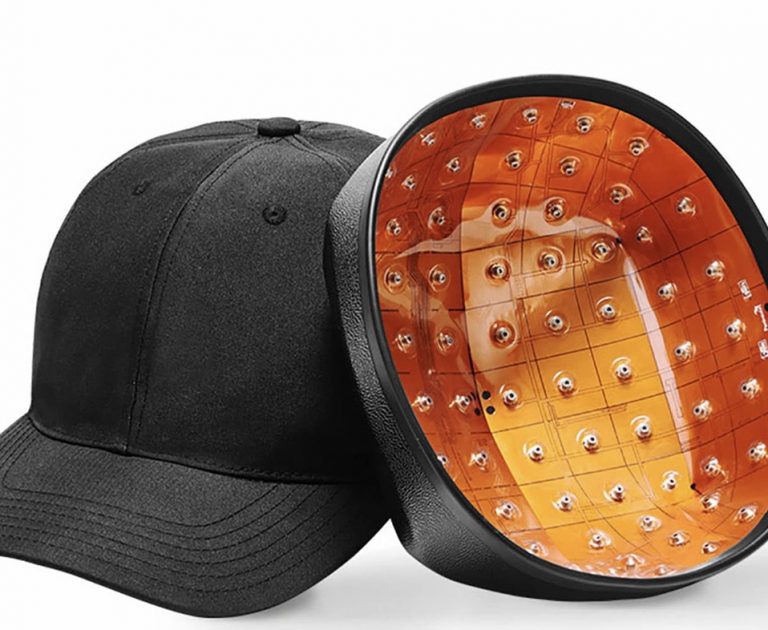It’s no secret that hair loss is a significant concern for many people around the world. Losing your hair can be distressing, and it’s not uncommon for individuals to try various remedies to try and slow down or even reverse the process. One of the latest treatments that are gaining popularity is using a laser cap for hair loss. So, does it really work?
Story Stages
What Is A Laser Cap And How It Can Help Combating Hair Loss:
A laser cap is a device you wear on your head that emits low-level laser therapy (LLLT) to stimulate hair growth. The caps come in different sizes and shapes, but all work similarly; they are designed with tiny lasers strategically placed inside the cap, delivering light energy directly to the scalp when worn. The theory behind this technology of using a laser cap for combating hair loss is that it increases blood flow to the hair follicles, delivering essential nutrients your scalp needs for healthy hair growth, thus rejuvenating dying follicles. Many people who have tried other forms of treatment for hair loss without success are often recommended laser caps as they produce specific wavelength light beams known for stimulating cell metabolism.
How Does A Laser Cap Work?
Low-level laser therapy doesn’t “burn” or damage cells like higher-powered lasers used in surgery – hence their “low level” description-, instead; they promote physiological healing by increasing ATP (adenosine triphosphate) activity at a cellular level which triggers healthier cell behavior located within tissue structures such as skin or scalp cells responsible for our hair health. In simple words – using light therapy, a laser cap aims to boost blood flow. Blood carries oxygen and nutrients necessary for our body organ function, including support required by our hairs medulla- also known as ‘hair bulb’ – nestled within each strand under its surface skin layer & Epidermis layer – the outer shield covering exposed surfaces. When there’s insufficient blood supply delivered into these layers due to aging or other reasons, we must jump in to help them rejuvenate their health. This results in retreading an almost “dead” hair follicle where new, stronger strands emerge. Laser caps are often designed for multiple treatments to realize any visible results.
Do Laser Caps Really Work?
The effectiveness of laser caps is still being debated in the scientific community; some studies claim that they do work, while others suggest otherwise. One commonly studied group is those with androgenetic alopecia, known as male or female pattern baldness which develops due to hormonal changes & genetic makeup. Studies examining the use of LLLT have shown that it may increase hair growth and thickness. But results vary between studies depending on many factors such as timing (in early stages vs. later stages), gender/type of baldness pattern severity, etc. Still, many users report improved hair growth rates within weeks/months after starting their treatment course.; Most reputable clinics offer a full refund policy if there’s no significant difference in your hair.
Why Are Laser Caps Recommended?
There are fewer side effects associated with laser cap treatments than other remedies like chemical-based products/medicines such as Propecia or minoxidil. As such, laser caps are considered relatively safer for people seeking regrowth prevention assistance. However, when considering this treatment option – you shouldn’t automatically assume all low-level-laser therapies operate alike; differing light frequencies impact blood flow differently. Hence, checking for positive verified reviews from past buyers is wise.
A laser cap might be worth considering if you’re struggling with hair loss and looking into various treatments. Despite mixed research reports on its effectiveness, many satisfied customers regularly post about finding success using laser caps when used according to the device instructions. Laser caps are non-invasive, don’t generally have any harmful side effects, and offer a more natural way of promoting hair growth. When looking for effective ways to stop hair loss and promote new growth – It’s always important to consult your dermatologist before deciding on what kind of treatment you choose, as they can provide valuable insight by monitoring your scalp’s overall health condition- supporting you in selecting the right choice suitable as per health potentials or possible interactions with current medications if any. With proper care, discipline, and attention – long-lasting results are possible.
